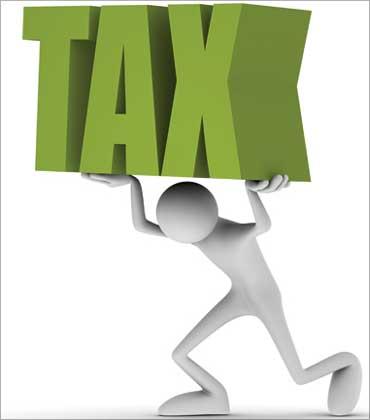
One of the high points of economic and fiscal reform in India in the past two decades has been the progressive moderation of direct tax rates.
Thanks to this, the ratio of direct to indirect taxes has risen, a sign of greater progressiveness and equity in India's taxation system.
Direct taxes are not easily passed on, as indirect taxes tend to be, and so their incidence is more directly on the individual or firm paying the tax.
While this has been a positive trend, the ratio of total tax revenues to national income has, in fact, come down in recent years and remains below 12 per cent.
India has a very low tax/GDP ratio by world standards.
. . .

Apart from widespread tax evasion and avoidance, the complete exemption of certain types of income from taxation, like agricultural income, has made it that much more difficult for the tax authorities to capture all taxable incomes.
While the Indian middle class is happy with existing rates of taxation and the government is in no position to increase the direct tax burden on the middle class, and while it is true that the greater challenge before the government is to reduce wasteful and socially unproductive expenditure, the fact also is that a case can be made for improving the equity dimension of the Indian tax regime.
Most analysts do note that income and wealth inequalities have widened in India, even though poverty itself may have come down.
. . .

The Business Standard's annual listing of Indian billionaires, to be published later this week, will show India's rich getting richer, and this is most starkly demonstrated by their extravagant homes, their private jets and luxury yachts.
Has the time come for the government to introduce greater equity into the tax regime by dipping into the increasingly deep pockets of India's wealthy?
There are several ways in which Finance Minister Pranab Mukherjee can impart to his Budget a more progressive bias, something that will go down well with his own party's liberal instincts and allow it to claim that the Budget is not just 'pro-poor' but, in fact, 'anti-super-rich'!
. . .

One simple intervention that may not yield much in terms of revenue but will pinch the wealthy is to bring back wealth tax in some form.
An inheritance tax, a death duty and long-term capital gains tax and a tax on dividends received are some such instruments that the government can use.
Indeed, the new direct taxes code has some of these ideas and they are worth implementing to make India's tax system more progressive.
The wealth of just 657 BS Billionnaires has been estimated to be Rs 16 lakh crore (Rs 1.6 trillion).
Taxing away just 0.1 per cent of that would yield a revenue of Rs 16,000 crore (Rs 160 billion).
. . .

A 10 per cent long-term capital gains tax, with the securities transactions tax dumped, and a death duty or inheritance tax can easily generate another Rs 10,000 crore (Rs 100 billion), netting a cool Rs 26,000 crore (Rs 260 billion) of additional direct tax revenue, without hurting the middle class.
Not only would this help Mr Mukherjee in his fiscal house-keeping but it would give his party a talking point at a time when it is being accused of corruption and currying favour with corporates.
Some, including the stock market, would cry foul and the government must factor that negative response in.
But many would cheer a government dipping into the deep pockets of the super-rich.